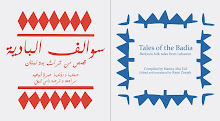James Petras' article answers my question from a previous post:
"The neo-colonized class structure, especially in largely agricultural economies are evolving into a four tier class system in which the foreign capitalists and their entourage are at the pinnacle of elite status representing less than 1% of the population. In the second tier, representing 10% of the population are the local political elite and their cronies and relatives as well as well placed bureaucrats and military officers, who enrich themselves, through partnerships (‘joint ventures’) with the neo-colonials and via bribes and land grabs. The local middle class represents almost 20% and is in constant danger of falling into poverty in the face of the world economic crises. The dispossessed peasants, rural workers, rural refugees, urban squatters and indebted subsistence peasants and farmers make up the fourth tier of the class structure with close to 70% of the population.
Within the emerging neo-colonial agro-export model, the ‘middle class’ is shrinking and changing in composition. The number of family farmers producing for the domestic market is declining in the face of state-supported foreign-owned farms producing for their own ‘home markets’. As a result market vendors and small retailers in the local markets are falling behind, squeezed out by the large foreign-owned supermarkets. The loss of employment for domestic producers of farm goods and services and the elimination of a host of ‘commercial’ intermediaries between town and country is sharpening the class polarization between top and bottom tiers of the class structure. The new colonial middle class is reconfigured to include a small stratum of lawyers, professionals, publicists and low-level functionaries of the foreign firms and public and private security forces. The auxiliary role of the ‘new middle class’ in servicing the axis of colonial economic and political power will make them less nation-oriented and more colonial in their allegiances and political outlook, more ‘free market’ consumerist in their life style and more prone to approve of repressive (including fascistic) domestic solutions to rural and urban unrest and popular struggles for justice." (Thanks Marcy)








+081.jpg)



No comments:
Post a Comment